Description
Objective Prosperity
How Behavioral Economics Can Improve Outcomes for You, Your Business, and Your Nation
by
Roger D. Blackwell, Ph.D., Retired Professor, The Ohio State University, and Roger A. Bailey, Ph.D., Clinical Assistant Professor, The Ohio State University
NOW AVAILABLE!!!
What Your Colleagues Are Saying About Objective Prosperity
“This book, Objective Prosperity, is a profound analysis of the roles of business, government, education, and personal responsibility in growing prosperity for everyone.” – Loretta Berryhill, California Business Owner
“I really connected with the chapter that discusses the effort that must be put into those things that we find worthwhile or valuable to move us forward in our lives – mentors, discipline, education, personal responsibility and individual responsibility.” – Deborah M. O’Brien, BS, RN, MPA, President, and Chief Executive Officer, Community Resources for Justice
“You will enjoy reading this book. The authors “colorize” principles with real-world examples from the individual (micro) level to that of nation-states (macro). Examples of successful (and less so) country policies are truly telling. They apply to political, business, and civic leaders not only at the federal but also at the state and local levels as well. The “solutionist” thread weaving its way through the book presents a unique perspective on how to approach issues on a broad range of topics.” – The Hon Sunil Sabharwal, former US board member to the International Monetary Fund, global Olympic sports leader, investor, and champion fencer.
“This book, Objective Prosperity, is one of the first that I could not put down the first read and enjoyed reading it the 2nd and 3rd times even more. Each time I found new thoughts expanding through my head. One is that we can no longer broad brushstroke economic models with the multi-layered behavioral changes around us in this hyper-informational age. This book is a must-read for any entrepreneur, like me in the automotive industry, to keep our eyes open to the rapidly changing consumer environment and how to think ahead.” – Rhett C. Ricart, Chief Executive Officer and Dealer Principal, 2020 Chairman National Automobile Dealers Association
“There are few things more powerful than understanding why people behave the way they do. Here, the leading teacher of consumer behavior for the past half-century, with an accomplished marketing and economics colleague, explains it. This book is a virtual treasure chest of knowledge and understanding, about how behavioral economics helps people reach their ultimate objective – prosperity.” – John Mariotti, President & CEO, The Enterprise Group
“Business libraries looking for wealth strategy and entrepreneurial advice books will find so much more in Objective Prosperity. Its vision of defining and analyzing the elements that constitute success needs to be part of a range of book club discussion groups, whether they are focused on business, personal achievement, or social inspection.” – D. Donovan, Senior Reviewer, Midwest Book Review and Editor, Donovan’s Literary Services
∼∼∼∼∼∼∼∼∼∼∼∼∼∼∼∼∼∼∼∼∼∼∼∼∼∼∼∼∼∼∼∼∼∼∼∼∼∼∼∼
∼∼∼∼∼∼∼∼∼∼∼∼∼∼∼∼∼∼∼∼∼∼∼∼∼∼∼∼∼∼∼∼∼∼∼∼∼∼∼∼
Regardless of how you earn a living, you have likely taken time during the pandemic to take stock of where you are and where you want to be in the future. These evaluations inevitably lead to the question: “How do I get there?” The answers may seem hard to find at times, and for a good reason. Every person comes from a different background, with different skillsets, constraints, weaknesses, and strengths. Identifying ways to increase your prosperity is made even more challenging by the reality that the success of your nation’s economy can have a dramatic effect on your own success. Politicians, prickly pundits, and pompous TV personalities will promise answers for you and your nation, but consider this: Are there really one-size-fits-all answers to improve prosperity?
Objective Prosperity Provides Real Life Examples, Keys To Prosperity And An Enhanced Understanding Of Behavioral Economics On A Micro And Macro Level
To be clear, this is not a book of simple answers to all of the world’s problems. There are certainly enough “expert opinions” on the planet to go around. Instead, this book provides a method for you to arrive at your own answers not driven by upcoming elections and TV ratings. Throughout the text, there will be a number of explanations, recommendations, and examples to identify solutions to improve your own prosperity and evaluate the policies that seek to improve the economy around you.
If you want to get the most out of this book, consider a few ground rules. First, try to approach the examples with as little bias as possible. Consider that this is far easier said than done. Biases, positive or negative, are learned predispositions to the environment around us. Just like every person has different strengths and weaknesses, every person also comes with different biases. Strong beliefs about the way things should be should not stop you from being able to evaluate a situation thoroughly and carefully. This book provides a behavioral-economics-based (data-based) view of prosperity that avoids the pitfalls of using preformed opinions and subsequent biases. In short, drop the dogma and dig into the data!
Second, this book will walk you through the opinions of multiple sources. Evaluation of the authoritative opinions of others allows you access to valuable information you may not otherwise consider. However, like every person, these sources will frequently have a slant to them (politically or otherwise), and yes, some may even include false or misinterpreted information! To help maintain objectivity, you should consider sources from different perspectives, not just those you are most comfortable with. The frequent quotes and references in the text provide further resources, but also highlight the importance of evaluating expert opinions in drawing conclusions for yourself.
In addition to the above, each chapter includes a few “Keys to Prosperity.” These examples, quotes, and discussions are provided as practical insights from the authors. Consider these a base point to work from as you evaluate your own situation, the situation of those around you, the current state of your nation’s economy, and how you might take action to improve your prosperity in light of these things!
Print – ISBN: 978-1-944480-77-6
EPUB – 978-1-944480-78-3
PDF eBOOK – 978-1-944480-79-0
Excerpt from the Introduction
Regardless of how you earn a living, you have likely taken time during the pandemic to take stock of where you are and where you want to be in the future. These evaluations inevitably lead to the question: “How do I get there?” The answers may seem hard to find at times, and for a good reason. Every person comes from a different background, with different skillsets, constraints, weaknesses, and strengths. Identifying ways to increase your prosperity is made even more challenging by the reality that the success of your nation’s economy can have a dramatic effect on your own success. Politicians, prickly pundits, and pompous TV personalities will promise answers for you and your nation, but consider this: Are there really one-size-fits-all answers to improve prosperity?
To be clear, this is not a book of simple answers to all of the world’s problems. There are certainly enough “expert opinions” on the planet to go around. Instead, this book provides a method for you to arrive at your own answers not driven by upcoming elections and TV ratings. Throughout the text, there will be a number of explanations, recommendations, and examples to identify solutions to improve your own prosperity and to evaluate the policies that seek to improve the economy around you.
If you want to get the most out of this book, consider a few ground rules. First, try to approach the examples with as little bias as possible. Consider that this is far easier said than done. Biases, positive or negative, are learned predispositions to the environment around us. Just like every person has different strengths and weaknesses, every person also comes with different biases. Strong beliefs about the way things should be should not stop you from being able to evaluate a situation thoroughly and carefully. This book provides a behavioral-economics-based (data-based) view of prosperity that avoids the pitfalls of using preformed opinions and subsequent biases. In short, drop the dogma and dig into the data!
Second, this book will walk you through the opinions of multiple sources. Evaluation of the authoritative opinions of others allows you access to valuable information you may not otherwise consider. However, like every person, these sources will frequently have a slant to them (politically or otherwise), and yes, some may even include false or misinterpreted information! To help maintain objectivity, you should consider sources from different perspectives, not just those you are most comfortable with. The frequent quotes and references in the text provide further resources, but also highlight the importance of evaluating expert opinions in drawing conclusions for yourself.
In addition to the above, each chapter includes a few “Keys to Prosperity.” These examples, quotes, and discussions are provided as practical insights from the authors. Consider these a base point to work from as you evaluate your own situation, the situation of those around you, the current state of your nation’s economy, and how you might take action to improve your prosperity in light of these things!
Contents
What Your Colleagues Are Saying About Objective Prosperity. iii
Foreword. v
Preface. vii
Additional Comments by Roger Bailey. xi
Contents. xiii
Introduction. 1
Chapter 1 Essential Topics of Economics. 3
What is the “Economy”?. 8
Who Gets How Much?. 11
Discussion Questions. 19
Chapter 2 Behavioral Economics: Something Old, Something New.. 21
The Original Economists. 24
Something Borrowed. 26
Something New: Behavioral Economics. 30
Daniel Kahneman. 31
Chapter 3 Who Controls the Economy? 37
Time and Money Budgets. 40
Discussion Questions. 49
Chapter 4 How People Buy Goods and Services. 51
Why People Buy. 55
It’s Not the Product – It’s the Benefit 64
The Road Map. 65
Discussion Questions. 68
Chapter 5 National Prosperity: Lessons from History. 69
An Ancient Example. 71
Economic Prosperity and Global Dominance. 75
Rise of Nation States. 78
The Sun Never Sets. 79
Creating a Culture of Prosperity. 83
Discussion Questions. 88
Chapter 6 How to Be Prosperous Instead of Poor 89
It’s a Marshmallow World. 92
Behavioral Antidotes to Racism.. 94
Recognizing the Problem.. 99
Historical Examples of Anti-Racism.. 103
Does It Take Money to Make Money?. 107
Personal and National Prosperity. 112
The Problem of Homelessness. 113
Income and Wealth Are Different 116
How to Be an Einstein at Investing. 117
Avoiding the Opposite of Wealth: Live Debt-Free. 119
Discussion Questions. 121
Chapter 7 The Ironic Inequality Paradox. 123
Inequality: For Better or Worse?. 124
Questions About Piketty’s Analysis. 125
Capital Versus Value Creation. 129
Poverty Versus Mobility. 132
Education: Key Attribute of Human Capital 133
What is Happening to the Middle Class?. 136
Generating High-Income Jobs. 138
Learning from Billionaires. 139
Discussion Questions. 143
Chapter 8 Unintended Consequences of Well-Intentioned Policies. 145
Lessons From Finance. 146
Even Great Ideas Have Consequences. 148
Is Anyone Anti-Antibiotics?. 151
Free College Tuition. 152
Forgiving Student Debt 154
Wealth Taxes. 157
Legalizing Marijuana and CBD.. 160
Immigration Policies. 163
Mandatory Minimum Wage. 167
Financial Transaction Taxes (FTT) 175
Medicare for All 176
Just the Facts! 181
Discussion Questions. 182
Chapter 9 Collectivism or Individualism: Which is Best?. 183
Examples at the Extremes. 184
Nordic Socialism.. 186
Rise and Fall of Collectivism.. 192
Russian Collectivism.. 192
The China Evolution. 199
Emerging Market-Driven Nations. 202
Collectivist Corruption. 205
The Merits of Meritocracy. 207
Evaluate a Policy on the Spectrum.. 211
Discussion Questions. 212
Chapter 10 Your Personal Path to Prosperity. 213
The Value of Values. 220
Your Personal Values for Prosperity. 223
Instrumental Values for Life. 226
Discussion Questions. 227
Roger’s Rules for Success. 229
Index. 231
Other Books By Roger D. Blackwell 247
Acknowledgments. 248
Credits. 250
About Rothstein Publishing. 251
About the Authors. 252
Foreword by John Mariotti
FOREWORD by John Mariotti
STOP reading! Now, do I have your attention? NO – DON’T STOP reading!
Don’t make the mistake I almost made of being put off by “Economics” in the subtitle. At first, I questioned, “who wants to read a 250-page book on economics?” Then I read a little more, skipped and skimmed based on the Preface. My first impression was wrong, as I found when I got deeper into the book’s content.
I kept on reading, often peeking ahead to see where the book was going. The more I read, the more I liked it. I quickly realized that “prosperity” could also describe success, survival, happiness, and a host of other desirable outcomes. I also learned a lot along the way, because the book is very rich in wisdom, and experience. I’ve known Roger Blackwell for 40 years and I’ve learned that when he has something to say – I listen!
I soon realized that the combination of “consumer behavior” and “economics,” (i. e., “behavioral economics”) is very powerful. Each of us will find our own treasures in this book. When I wondered how to stay on the path to prosperity, the “Keys” kept helping me.
There are few things more powerful than understanding why people behave the way they do. Here, the leading teacher of consumer behavior for the past half-century, with an accomplished marketing and economics colleague, explains it. I saw that not only individuals but also groups (companies, organizations, and even countries) were made up of people behaving in ways that serve their self-interest, seeking rewards and prosperity.
Few books contain and explain so much content to help readers understand this. Everyone has similar objectives: success, gratification, recognition, and, ultimately, prosperity – each defined in their own unique context and terms. As I read further, chapters describe how diverse people learned and earned, or fought, to achieve prosperity (including enduring unintended consequences of even good ideas). This book is a virtual treasure chest of knowledge and understanding, about how behavioral economics helps people reach their ultimate objective – prosperity.
Suddenly, I found myself at the end, reading “Roger’s Rules for Success.” I was gratified, wiser, and far more aware of many things that I didn’t understand as well before. Above all, I was happy I didn’t take my own opening advice and STOP reading. I hope you will not stop but keep on reading. FYI: I found this book so rich in content, that it deserves a second or third reading.
John Mariotti
President & CEO, The Enterprise Group
Chairman of World Kitchen
Former President, Rubbermaid, Office Product Division
Former President, Huffy Bicycles
Former Chairman & Director, World Kitchen LLC
Powell, Ohio
July, 2022
Preface by Roger Blackwell Ph.D.
If you have ever heard Economics called “The Dismal Science,” prepare to reset and propel your thinking about economics at quantum speed. Would you call it “dismal” to know how poor people of diverse racial, ethnic, and educational backgrounds escape poverty and become prosperous? Do you know how the ironic inequality paradox allows some people born in the bottom twenty percent to elevate themselves to the top twenty percent? Would you call it dismal or exciting to learn how, starting around age 45, to gradually become very prosperous with nothing more than what you have earned and learned working many years in a retail store?
Do you know how to grow up in one of the poorest nations in the world, called by some a “malaria-infested swampland” and see it become a nation more prosperous than the United States? Do you believe people in the Netherlands or Saudi Arabia are more prosperous? Do you know how the United States started equal in per capita income with the rest of the world to become one of the wealthiest nations in the world (but not the wealthiest)?
If you already know the answers to these questions, you probably don’t need to read this book other than, perhaps, to have facts that will help you explain to friends who may not know them. But if you choose to read the rest of the book, you will find these answers and more about how to increase your own prosperity as well as understand why nations are poor or prosperous. And, perhaps, you will conclude the study of Behavioral Economics is not dismal, maybe even delightful.
Behavioral Economics is considered a new field of study by some, but as you will see in Chapter Two, it has many of the attributes of traditional wedding attire, “something old, something new, something borrowed, something blue.” If you already know a lot about economics, you can skip Chapter One, but you may want to review it to be sure you understand two concepts essential to understanding how you prosper and contribute to national prosperity.
You may be tempted to go straight to the two most practical chapters in the book, “Why Some Nations are Rich and Other Nations Poor” and “How to Be Prosperous Instead of Poor.” (Chapters 5 and 6). If you want to read those chapters first, that is reasonable, maybe to apply those principles to your life immediately. But if you want to know who controls future prosperity, perhaps it will be profitable to read Chapters Three and Four which document who controls future prosperity for both nations and individuals like yourself. Spoiler alert! It is not the President of the United States or even the Chairman of the Federal Reserve.
Is inequality getting better or worse? You may find the discussion of that issue in Chapter Seven ironic and paradoxical. You will probably also find that Chapter Eight raises issues you may not have considered in the past but that are critical to your future. And please don’t read Chapter Nine until you have fully considered all the earlier chapters. Finally, when you arrive at the concluding chapter, the content of this book is summarized in Ten Rules that helped me survive and sometimes thrive in a life spanning many decades. They are not presented as suggested rules for you but perhaps as motivation to write down your own rules for the rest of your life.
After forty previous books, there was only one good reason for me to write another – to help you understand your own prosperity and typical income as well as wealth of people living in the nation. While this book is based on empirical research – the kind that helps people receive promotions as a professor and accumulate enough wealth to donate my career salary back to the university where I taught for forty years – it is also based on practical lessons growing up in the Missouri Ozarks, learning the only people who do not work on a farm are those who do not want to eat.
When I was in high school, at age 16, I began working at a local radio station as a janitor and progressed to higher positions, working full time while attending Northwest Missouri State before transferring to Missouri University to receive my bachelor’s and master’s degrees and a Ph.D. from Northwestern University, all without financing from parents or accumulating debt myself. You can read more details in the concluding chapter of this book, but from life and parents, I learned you do not have to have money to obtain a quality education. Where there is a will, there is a way for poor people to achieve a good education. This book describes how.
While reading this book, you will observe something different than most books: no footnotes. Decades ago, books included numerous citations at the bottom of pages, slowing reading substantially. To solve this problem, reader-oriented authors began putting citations at the end of chapters or the end of the book. Even with this improvement, printed citations were sometimes out of date or limited in scope.
I have taken a behavioral approach, omitting footnotes in this book. If there is a term such as a demand curve or an author such as Daniel Kahneman about which you would like to learn more, you are encouraged to use your favorite search engine to get a recent explanation with as much detail as you prefer.
At The Ohio State University, I had the incredible learning experience of teaching over 65,000 students, mainly in the business school but also courses in Thanatology and Health Care Economics for the Medical School. I was also a member of the Black Studies faculty for a few years, reflecting a life-long interest in cross-cultural research, civil and human rights, and upward mobility among under-served minority groups. My primary research area was behavioral aspects of marketing, co-authoring Consumer Behavior, a text translated into Russian, Portuguese, Spanish, French, Korean, and other languages used in universities and organizations in many countries. The success of that and other texts was the catalyst for being invited to teach and do research in 39 countries on six continents, learning from personal observation what makes some people poor and some prosperous.
After retiring from Ohio State, my understanding of poverty and prosperity was enriched further while teaching General Educational Development (GED) classes for almost six years to inmates at the Federal Correctional Institution in Morgantown, West Virginia. There is nothing quite as educational about how people escape (or do not escape) from project housing in the hood and other dysfunctional backgrounds as the daily teaching of former drug dealers. The GED students were often members of gangs, cartels, and other diverse occupations (including a former Mafia hitman studying economics, math, government, grammar, and literature. In prison, when you teach math, explaining the metric conversion of grams to ounces, it is not unusual to be asked, “Is that with or without the bag?”
I taught students in prison how to obtain a GED and, when they left prison, how to get a job, but the GED students in prison taught me even more about the realities of poverty, crime, and injustice. Nelson Mandela was correct when he said no one understands a nation as well as people who spend time in its prisons. You can read additional details of my life, in both prosperity and prison, in You Are Not Alone and Other Lessons a Teacher Learned from Parents, Professors, and 65,000 Students.
While writing this book, I asked Dr. Roger Bailey for advice and help. His insights as a marketing professor at Ohio State and his strong background in Economics and Quantitative Methods were invaluable to improving and extending many areas of the book. I asked him to join me as co-author, which he graciously accepted. We might not agree on every detail in the book, but hopefully his addition will make it more useful to you.
Roger Blackwell, Ph.D.
Columbus, Ohio
July, 2022
What Your Colleagues Are Saying About Objective Prosperity
“This book will make you think. What factors influence the chances for individual success and national prosperity? How does behavioral economics help us understand who is financially rewarded? How can you prosper even if you were born poor? What is the best way to manage your savings? The authors cite the thoughts of many profound thinkers on how to live a rewarding life.”
- Philip Kotler, S.C. Johnson & Son Distinguished Professor of International Marketing, emeritus, Kellogg School of Management, Northwestern University
“I really connected with the chapter that discusses the effort that must be put into those things that we find worthwhile or valuable to move us forward in our lives – mentors, discipline, education, personal responsibility and individual responsibility.”
- Deborah M. O’Brien, BS, RN, MPA, President, and Chief Executive Officer, Community Resources for Justice
“This book is a profound analysis of the roles of business, government, education, and personal responsibility in growing prosperity for everyone.’
- Loretta Berryhill, California Business Owner
“You will enjoy reading this book. The authors “colorize” principles with real-world examples from the individual (micro) level to that of nation-states (macro). Examples of successful (and less so) country policies are truly telling. They apply to political, business, and civic leaders not only at the federal but also at the state and local levels as well. The “solutionist” thread weaving its way through the book presents a unique perspective on how to approach issues on a broad range of topics.”
- The Hon Sunil Sabharwal, former US board member to the International Monetary Fund, global Olympic sports leader, investor, and champion fencer.
“This book is one of the first that I could not put down the first read and enjoyed reading it the 2nd and 3rd times even more. Each time I found new thoughts expanding through my head. One is that we can no longer broad brushstroke economic models with the multi-layered behavioral changes around us in this hyper-informational age. This book is a must-read for any entrepreneur, like me in the automotive industry, to keep our eyes open to the rapidly changing consumer environment and how to think ahead.”
- Rhett C. Ricart, Chief Executive Officer and Dealer Principal, 2020 Chairman National Automobile Dealers Association
“There are few things more powerful than understanding why people behave the way they do. Here, the leading teacher of consumer behavior for the past half-century, with an accomplished marketing and economics colleague, explains it. This book is a virtual treasure chest of knowledge and understanding, about how behavioral economics helps people reach their ultimate objective – prosperity.”
- John Mariotti, President & CEO, The Enterprise Group
About the Authors
 ROGER BLACKWELL financed his education by working at radio and television stations and a newspaper in Missouri. After receiving his Ph. D. at Northwestern University, he joined the faculty of The Ohio State University where he taught 65,000 students and co-authored Consumer Behavior, a textbook used throughout the world in multiple languages and editions, and 30 other books. He also lectured and conducted research in 40 countries on seven continents, observing in-person why people are poor or prosperous. While a professor, he was on the boards of fourteen public corporations. Currently, he serves on boards of private organizations and teaches seminars about economics in the U.S. and Canada.
ROGER BLACKWELL financed his education by working at radio and television stations and a newspaper in Missouri. After receiving his Ph. D. at Northwestern University, he joined the faculty of The Ohio State University where he taught 65,000 students and co-authored Consumer Behavior, a textbook used throughout the world in multiple languages and editions, and 30 other books. He also lectured and conducted research in 40 countries on seven continents, observing in-person why people are poor or prosperous. While a professor, he was on the boards of fourteen public corporations. Currently, he serves on boards of private organizations and teaches seminars about economics in the U.S. and Canada.
ROGER BAILEY was born in Toledo, Ohio, and lived on the east side until middle school. After his parents separated, his mother remarried a musician and his family moved to several different states throughout his adolescence (Arizona, Tennessee, Idaho). In high school, Roger had grown tired of leaving friends behind and upon his family’s next move he accepted a position to live on a local cattle ranch in Southern Idaho and work for his room and board through his last two years of high school.
After his parents separated, his mother remarried a musician and his family moved to several different states throughout his adolescence (Arizona, Tennessee, Idaho). In high school, Roger had grown tired of leaving friends behind and upon his family’s next move he accepted a position to live on a local cattle ranch in Southern Idaho and work for his room and board through his last two years of high school.
After graduation, Roger moved to be with his family again in northern Arizona. After a few years working full-time, Roger returned to school at the local community college. He worked full-time at the local hospital while earning his Bachelors and Master of Science degree in Mathematics at Northern Arizona University, graduating Summa Cum Laude and with Distinction respectively. Roger’s desire to work in a more applied area led him to pursue a Ph.D. in Economics at Vanderbilt University, and to pursue a post-doctorate position in marketing at the Fisher College of Business. As a Clinical Assistant Professor of Marketing, Roger teaches coursework that applies mathematics, statistics, and economics to improve decision-making in the field of marketing. A passionate educator and student advocate, Roger has won multiple teaching awards in his time at The Ohio State University and also serves as Academic Director of the full-time MBA program.
Midwest Book Review
Reviewed by D. Donovan, Senior Reviewer, Midwest Book Review and Editor, Donovan’s Literary Services.
“Objective Prosperity: How Behavioral Economics Can Improve Outcomes for You, Your Business, and Your Nation is a study in contrasts between wealth management processes and business and individual pursuits of prosperity.
“It poses some hard questions that encourage readers to analyze not just their business and wealth objectives, but the wellsprings of their perception of and drive towards prosperity and success.
“This book comes with a caution. It will make even the determined or successful businessperson think about wealth and strategy in new ways that can also be uncomfortable. Those on track to achievement rarely take the time to consider the underlying meaning and influences of that word’s definition, but Objective Prosperity doesn’t just encourage this extra layer of thought — it demands this of its readers.
“The analysis embraces the notion of prosperity for everyone rather than just a few, supporting this vision with a series of real-world examples that receive enlightenment through research studies, analysis, and models of the kinds of business activities that lead to and redefine success.
“During this process, Blackwell and Bailey provide insights that support these revised business and personal visions of achievement: ‘The way to think of your product is the total utility of the bundle of attributes designed to solve a problem. The more pressing a problem, the greater the opportunity to sell a product solving that problem. Your product must scratch where people itch! To prosper as an entrepreneur, you must truly deliver the utility from solving their problem and do it repeatedly and consistently. That is why some people (both entrepreneurs and their employees) prosper — because their products continue to sell, grow revenues, and expand segments served. Selling a product is not the same as fulfilling a need.'”
“The studies of individuals and businesses acknowledge that the process of attaining success is not equally available to all. Many contrasts are provided to illustrate diverse paths to prosperity: ‘The reality is that even people born poor, values such as knowledge and discipline in their life can help them rise from the bottom to the top. Of course, this requires the opportunity to acquire knowledge, which data clearly shows is not equally accessible to all people at birth. While this is certainly something to discuss as a barrier to prosperity, it is worth noting that there are sometimes ways to overcome these barriers. Reading books from local libraries was the way out of poverty for famed neurosurgeon Dr. Ben Carson as he describes in several of his books including Gifted Hands. Moreover, not everyone has the desire to attend a university to obtain the knowledge from a university degree, but there are many other paths to prosperity.'”
“By now, it should be evident that Objective Prosperity operates on different levels: as a personal examination of the strategies and values involved in defining and reaching for prosperity; as a business consideration of consumer needs and how growth and success may be obtained by matching products and services to their visions; and, as a social analysis that considers issues of equality, poverty, wage equity, and more associated issues.”
“Objective Prosperity is not intended to provide a set of simple answers. It lays the foundation for individual reader analysis no matter what path they walk in life, improving the reader’s critical thinking capabilities by expanding the limits and definition of prosperity in all kinds of situations.
“Business libraries looking for wealth strategy and entrepreneurial advice books will find so much more in Objective Prosperity. Its vision of defining and analyzing the elements that constitute success needs to be part of a range of book club discussion groups, whether they are focused on business, personal achievement, or social inspection.”

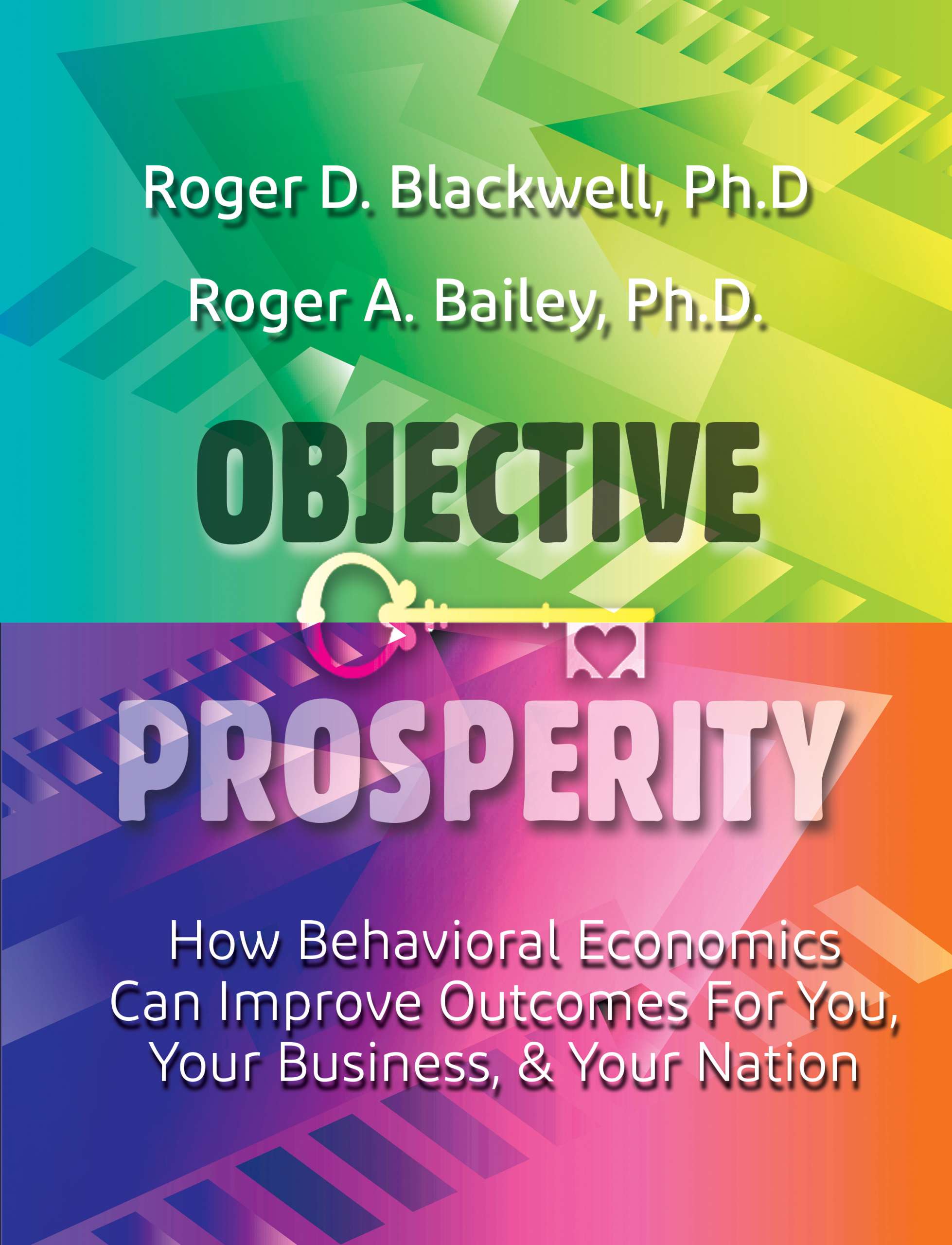
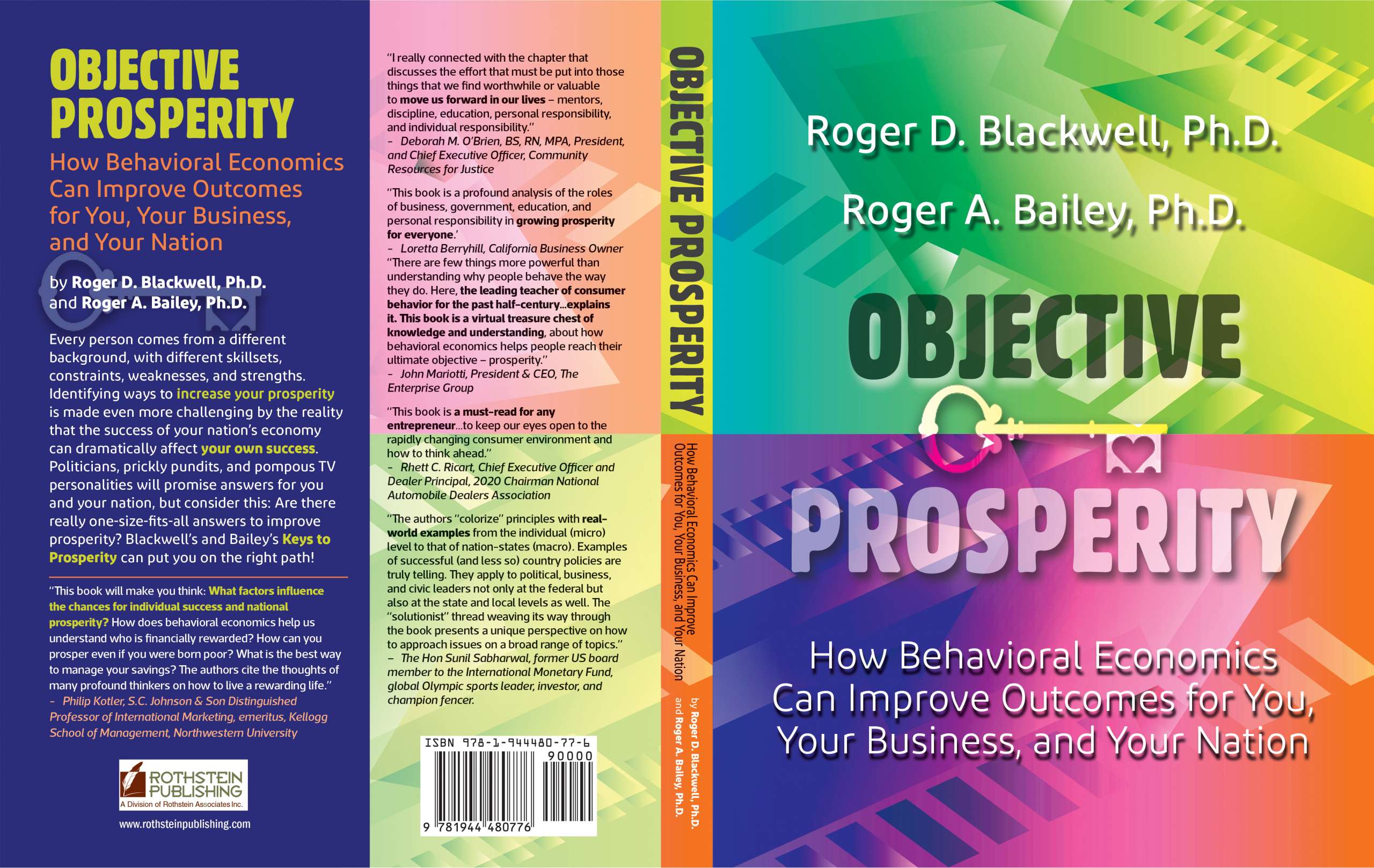


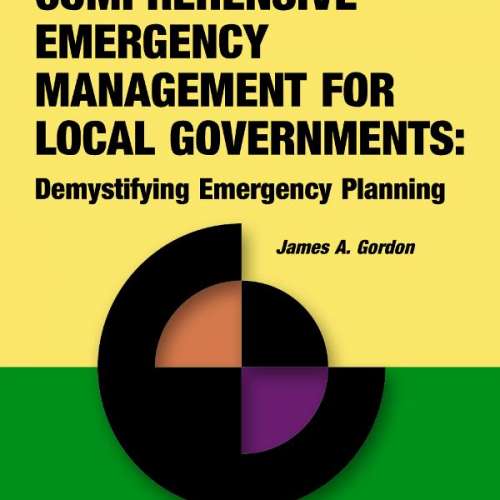
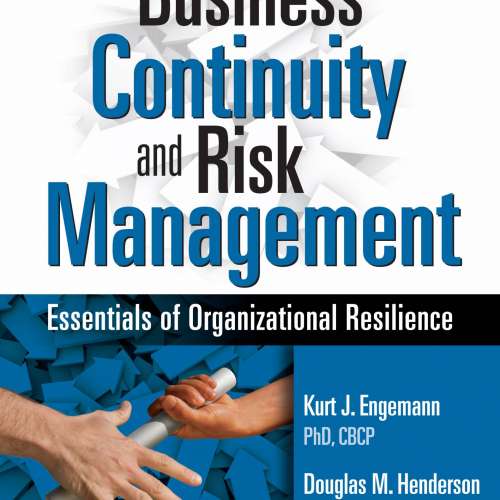
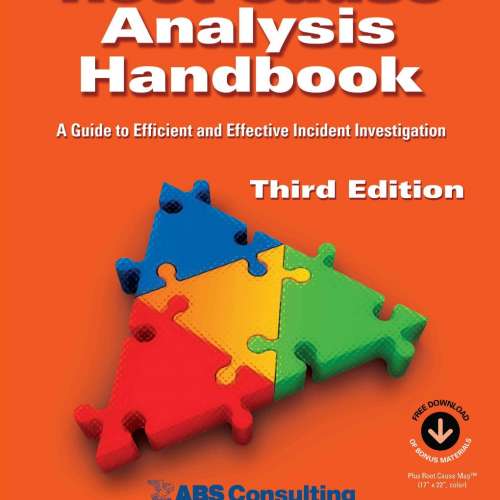
Additional Comments by Roger Bailey
First, I want to reiterate that this book is the brainchild of Dr. Blackwell, and I was very happy to join him and contribute my ideas and perspectives along the way. It is our sincere belief that every reader will take away something useful from the concepts and examples presented in the following chapters.
To point out another perspective that complements Dr. Blackwell’s, I’ll return to his comment about economics being called “the dismal science.” This term for economics was coined in the 1800s by Thomas Carlyle. One view of economics at that time, proposed by Thomas R. Malthus, was that food would always be scarce and that poverty and hardship were unavoidable. Subsequently, many concluded that the “dismal science” phrase described the bleak outlook of economics for humanity.
This general view is consistent with many people’s views of economics, business, and prosperity today. Most humans care about the well-being of other humans. It is easy to see the vast differences in wealth and prosperity across the globe and conclude that financial success requires a person (or a nation) to treat others poorly. In other words, prosperity appears to come from ill-gotten wealth. If this is your view of the world, this book will challenge that perspective.
The reality is that becoming more prosperous does not require you to mistreat others. Moreover, being a compassionate person does not require you to forgo successful strategies and sound business practices to improve the prosperity of you and your country. However, improving prosperity does require careful thought, planning, and methodical consistency toward your goals.
This book presents the view that economics, specifically behavioral economics, can be combined with an objective view of a situation to identify solutions for improving prosperity. The views in this book are consistent with fairness, empathy, and a desire to confront the problems in the world. On the other hand, this book will also objectively present the traits and characteristics of both individuals and nations that have consistently led to prosperous outcomes in the past.
Going back to Thomas Carlyle’s view of economics, a brief investigation of his history reveals that he was anti-Semitic, racist, and had contempt for the notion of equal rights. Also, note that some of the first abolitionists in history were economists. In the 1770s, Adam Smith used economic theory to present a strong argument against slavery. Given Carlyle’s pro-slavery views, it is widely believed that Thomas Carlyle’s labeling of economics as “dismal” was a way to discredit a field that confronted his own bigoted beliefs. We hope you will agree that there is nothing dismal about the recommendations of this book!
In closing, the goal of this book is for you to come away with a “solutionist” perspective. Regardless of your political persuasion or your current financial situation, this book will provide you with tools for improving your own situation as well as for evaluating solutions and policies to improve the prosperity of your nation. After all, as you will see in the coming pages, your success can very much depend on the prosperity of those around you!
Roger Bailey
Clinical Assistant Professor
Fisher College of Business
The Ohio State University
July, 2022